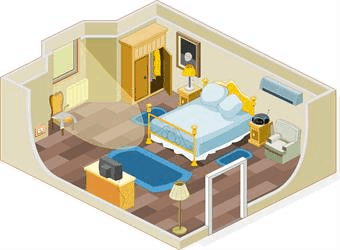Makeover Your Bedroom for Better Sleep

Aside from seeing a doctor, you can take steps to reduce interference to your sleep by improving your sleeping environment. Your bedroom is not just a place for you to sleep. It is also your sanctuary where you can retreat from the stressors of life and rejuvenate yourself. Dr Joshua Kua, Specialist in Psychiatry & Consultant, Raffles Counselling Centre, shares tips to help make your bedroom a more conducive place to sleep in.
Remove unwanted sources of light
Light prevents the production of the sleep-inducing hormone melatonin, making it harder for you to fall and stay asleep. Consider keeping your room dark by blocking off sources of ambient light. Use curtains to block off streetlights, and hide your alarm clock from view.
Unplug technology
While modern technology keeps us connected and raises our productivity; it is also a source of distraction if used inappropriately. Playing a mobile game before bedtime, or even responding to emails stimulates our brain and makes our body tense, creating a situation not conducive for sleep. Disconnecting from technology can help our brain unwind to prepare for sleep.
Keep your room neat and tidy
A cluttered room represents unfinished tasks, which may lead your brain to interpret it as an undone chore. Minimise distractions by keeping your room clean and tidy.
Turn on the air-conditioning
A lower room temperature improves sleep quality because it helps lower your body temperature to achieve deep sleep.
Examine your room’s colour scheme
Your sleep can be affected by your wall and bedding colour. If you want to repaint your bedroom, go for shades of blue as it represents calmness. Alternatively, soothing colours work too! Where possible, avoid bright colours, as they may create a stimulating environment that works against relaxing or resting.
Block off external noises
If you stay in a noisy neighbourhood, consider wearing earplugs or using heavy blinds to buffer noises such as heavy traffic or animal sounds, as they may wake you when you are in the shallower cycles of sleep.



